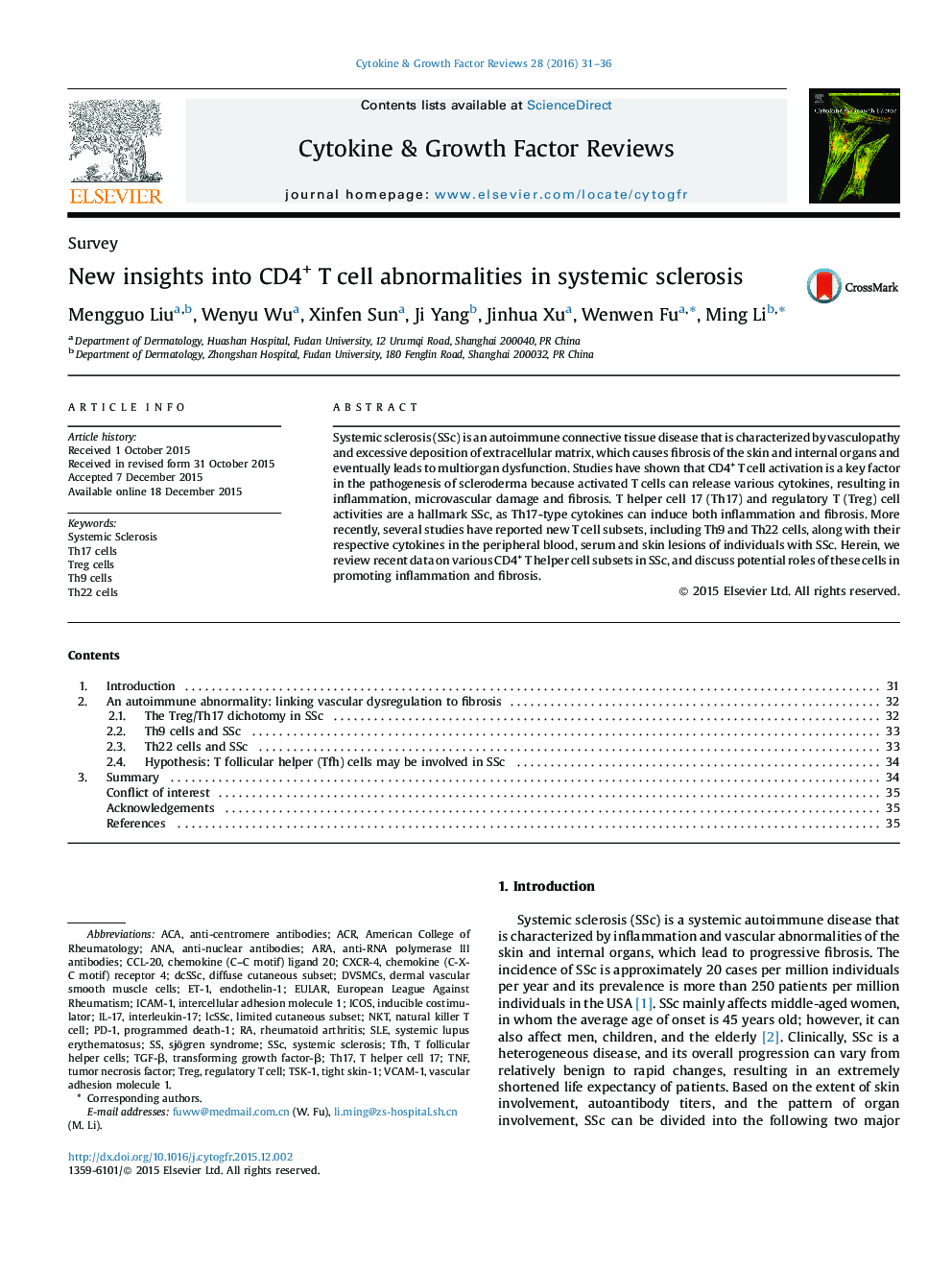| Article ID | Journal | Published Year | Pages | File Type |
|---|---|---|---|---|
| 2170422 | Cytokine & Growth Factor Reviews | 2016 | 6 Pages |
•We systematically summarize recent data on various CD4+ T cells activation in systemic sclerosis (SSc), and discuss their potential role in promoting inflammaton and fibrosis.•The T helper cell 17 (Th17)/regulatory T cell (Treg) paradigm is one of the hallmarks of SSc, as Th17-type cytokines can both arouse inflammation and fibrosis. Furthermore, several studies have reported new T cell subsets in the peripheral blood, serum and skin lesions of SSc individuals, including Th9, Th22 cells and their iconic cytokines.•Moreover, we speculate that the newly-discovered T follicular helper (Tfh) cells may be also involved in the pathogenesis of SSc.
Systemic sclerosis (SSc) is an autoimmune connective tissue disease that is characterized by vasculopathy and excessive deposition of extracellular matrix, which causes fibrosis of the skin and internal organs and eventually leads to multiorgan dysfunction. Studies have shown that CD4+ T cell activation is a key factor in the pathogenesis of scleroderma because activated T cells can release various cytokines, resulting in inflammation, microvascular damage and fibrosis. T helper cell 17 (Th17) and regulatory T (Treg) cell activities are a hallmark SSc, as Th17-type cytokines can induce both inflammation and fibrosis. More recently, several studies have reported new T cell subsets, including Th9 and Th22 cells, along with their respective cytokines in the peripheral blood, serum and skin lesions of individuals with SSc. Herein, we review recent data on various CD4+ T helper cell subsets in SSc, and discuss potential roles of these cells in promoting inflammation and fibrosis.
Graphical abstractSchematic conspectus of SSc pathogenesis. Patients with systemic sclerosis display autoimmunity abnormality, vasculopathy, and fibrosis. Vasculopathy generally occur at the earliest stage and exist throughout the course of the disease. Autoimmunity exacerbate the progression of vasculopathy and fibrosis. Vascular dysregulation and interstitial fibrosis perpetuate autoimmunity. SSc, systemic sclerosis; ECM, extracellular matrix.Figure optionsDownload full-size imageDownload high-quality image (154 K)Download as PowerPoint slide
